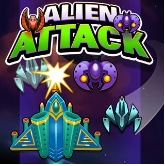The Best New Music, Books, and Films of Fall
Vegans, caribou, songwriting, and other treats to check out as you refresh your media diet
Fall is the time to dust off your winter layers, skis, bookshelf, and various media apps. We have some ideas for those last two things. Here’s what we think you’re going see, hear, and read a lot of in the coming months.
For Your Playlist
’Tis the Season for Beautiful, Complicated Songwriting
One autumn long ago, I sat on a hay bale in Fort Collins, Colorado, watching Gregory Alan Isakov play to a crowd composed mainly of bawling toddlers and stilt walkers. I’d like to think we’ve both progressed a lot since then (dude’s got his own farm now, so at least he has), but Isakov’s swooping melodies still feel like fall to me. His new album, Evening Machines, hits all kinds of melancholy sonic spots.
As solo artists, Julien Baker, Phoebe Bridgers, and Lucy Dacus all write understated rock songs that are both pretty and painfully true. Together, they’re putting out a six-song EP and traveling this fall as a newly formed band, Boygenius, which seems exceptionally smart.
Ruston Kelly’s Nashville-y debut album, Dying Star, touches on addiction, recovery, redemption, and the road. His songs are old-school singer-songwriter stories couched as twangy earworms that have so far proved impossible to stop listening to.
For Your Bookshelf
Dudes Are Walking Around Trying to Figure Things Out
Not women—women have therapy and friendship, so we’re good on the “voyage to discovery” tip—but men are, apparently, still working through that. This fall’s best journey is Leath Tonino’s ramble through the topography and history of his home state of Vermont in The Animal One Thousand Miles Long. The collection of essays includes “Seven Lengths of Vermont,” in which he crosses the Green Mountains seven different times, seven different ways. If crisp days drum up New England nostalgia for you, this book probably won’t help.
Halfway across the world, John Kaag, now a middle-age dad, goes back to the mountains, the Swiss Alps, and the philosopher, Nietzsche, that fascinated him when he was young. In Hiking with Nietzsche, Kaag explores how the idea of striving mentally and physically are tied together. To be honest, at this point in my life I’m probably never going to read Nietzsche, but Kaag’s clear writing and insight into why we get obsessed with peaks—“I was 19. Parent mountains had a certain power over me,” he writes—rang true and made me feel slightly more enlightened.
For Your Laptop
Eating Veggies Won’t Make You a Noodle-Armed Wimp
The Game Changers, produced by blockbuster filmmaker James Cameron and directed by Louie Psihoyos (the man behind The Cove), digs into why a plant-based diet is good for athletes—and everyone—and why a meat-focused diet is rough on bodies and the environment. A movie like this could easily trend toward proselytizing, but it doesn’t, thanks to a narrative that follows former UFC champion James Wilks and other athletes who have gone vegan and is underlined by easy-to-digest science and medicine. It’s worth watching if you care about where your food comes from and what it does to your body.
If you want ideas about what to eat once you’ve sworn off flesh, Timothy Pakron’s Mississippi Vegan soul food cookbook drops in October. Now your only challenge is remembering that the first rule of veganism is that we don’t talk about our veganism. Please.
For Your Coffee Table
We Aren’t the Only Animals Living on This Planet
How do animals adapt to humans and cities, and how do we, hopefully, adapt to give them space? Two new books search for some answers to those questions and come at them from opposite standpoints. Gavin Van Horn’s The Way of the Coyote looks at the hidden ways wild animals weave themselves into urban areas, specifically Chicago. In Caribou Rainforest, wildlife tracker David Moskowitz tails the last 20 mountain caribou in the United States and examines why the loss of the Pacific Northwest’s inland rainforest means more than the loss of these ungulates.
You May Also Like

AI in Fashion: Revolutionizing Design, Sustainability, and Shopping Experiences
February 28, 2025
Google Snake Game: A Classic Arcade Experience
March 23, 2025